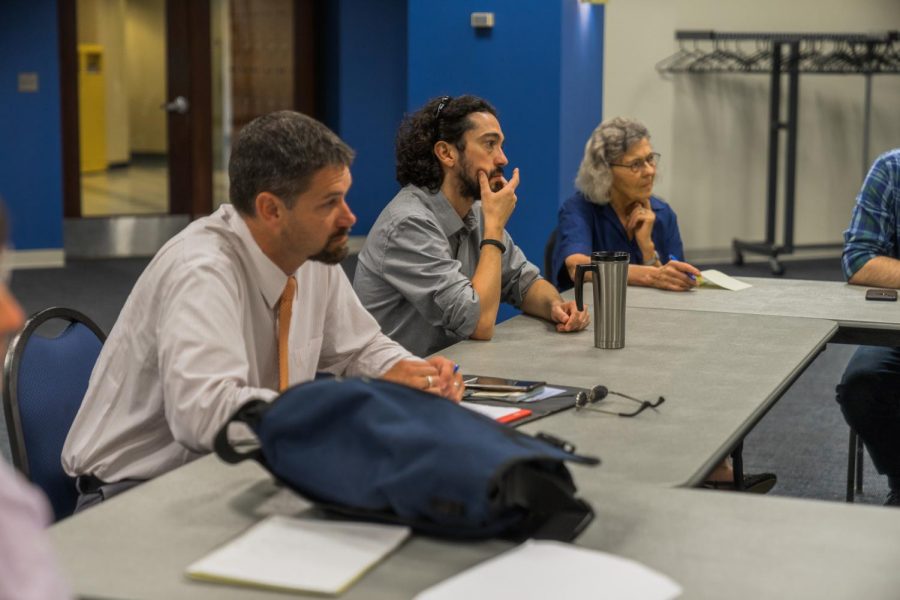
On the rooftop of the Opus College of Engineering building you can hear the buzzing of bees from one of around 50 beehives located in southeast Wisconsin.
“A number of students would come up to the roof where I had bees and started to fall in love with the bees and thought it was really cool,” Charlie Koenen, director of BeeVangelists and supervisor of MU Pollinators, said.
MU Pollinators was formed by Koenen in 2017 in order to “raise pollinator awareness.” The club works with BeeVangelists to “spread the gospel of abundance as taught by the bees” through advocacy, education, products and practice.
“We want people to become a little more aware of the role that pollinators play, not just honeybees but all insect pollinators, in how the world runs because these vital members of Earth’s society need a little bit more care,” Koenen said.
BeeVangelists, along with MU Pollinators, hosts activities such as spinning honey, honey tastings, candle dipping, making lip balms and wax melting. Students can come see movies, talks and workshops regarding pollinators as well.
Koenen said students even have the opportunity to hold and work with the bees.
“What’s interesting is that everybody, at some point in time, loses their fear and starts to embrace the bees,” Koenen said. “And that’s kind of the whole point that I’m trying to make with bee-vangelizing is that bees aren’t the scary things that everyone thinks they are. When you get up close to them, they’re actually pretty awesome.”
A pollinator is any animal that moves pollen from the stamen of the flower to the stigma, which fertilizes the plant. There are approximately 200,000 different species of animals around the world that act as pollinators and over 4,000 species of native bees in the United States.
Bees play an important role in maintaining healthy ecosystems through pollination. They pollinate 70 of the around 100 crop species that feed 90% of the world and are responsible for $30 billion a year in crops.
Researchers have also noted claims that honey has antioxidant, antimicrobial, anti-inflammatory and anticancer properties.
“I’m an avid gardener and bees are important. I would say that not only students but humans need to be aware how important bees are,” Jill Schuettner, mechanical engineering office associate and a volunteer for the MU Pollinators, said.
In 2020, Marquette welcomed bee researcher Chelsea Cook to campus as an assistant professor in the Department of Biological Sciences. Cook is also the faculty advisor for the MU Pollinators group.
Cook created The Cook Lab to explore the behavioral, neurological and genetic basis of collective cognition. The research lab seeks to answer questions about how societies are organized and perform important jobs.
“We use honeybees as our model society to explore these questions, and we study how they work together to cool their colony,” Cook said. “We seek to understand behaviors related to this cooling at every biological level: genetics, physiology, individual behavior, group behavior, society, and reproductive success and the overall impact on the ecosystem and agriculture.”
Through BeeVangelists and The Cook Lab, MU Pollinators hope to shift the community’s thinking about bees.
“Regardless of what course or direction students choose to take in their lives, we want them to embrace the importance of pollinators so they can make changes to how they do what they do,” Koenen said. “I’m not saying become a beekeeper but just saying think about things that can affect pollinators and keep this stuff in mind.”
This story was written by Bailey Striepling. She can be reached at bailey.striepling@marquette.edu.


